Mad Men returned Sunday night with a scene that, on paper, sounds straight out of a rap video: A man who went from rags to riches surrounds himself with women in mink coats and says things like, “It’s Chinchilla, and it costs $15,000. How does that make you feel?” But instead of Jay Z boasting into Beyoncé’s ear, we have Don Draper ordering around a model in what’s revealed to be—after some cleverly misleading camera-work—yet another in a series of casting sessions so shameless even the secretaries are making comments. And that’s not the only fake-out viewers get in the first of the AMC drama’s final seven episodes.
While Don and the boys are ogling models in the office, Joan and Peggy are having a hard time being taken seriously by their male colleagues as they try and launch a high-end department-store line of Topaz Pantyhose to compete with growing low-cost competitors. Despite the fact that they are the only ones at SC&P getting any real work done, one of their meetings is nearly derailed by the sexist and lecherous comments hurled Joan’s way. Still, that encounter is nowhere near as tense as the subsequent elevator ride, when Peggy tells a visibly frustrated Joan that she can’t expect to be respected if she continues dressing the way she does. As Joan retaliates with a sharp remark about Peggy’s own physical appearance, it’s clear the two have opposite problems in the quest for the elusive work-life balance.
'Mad Men' Up Close: Photos From the Set of the Celebrated Show
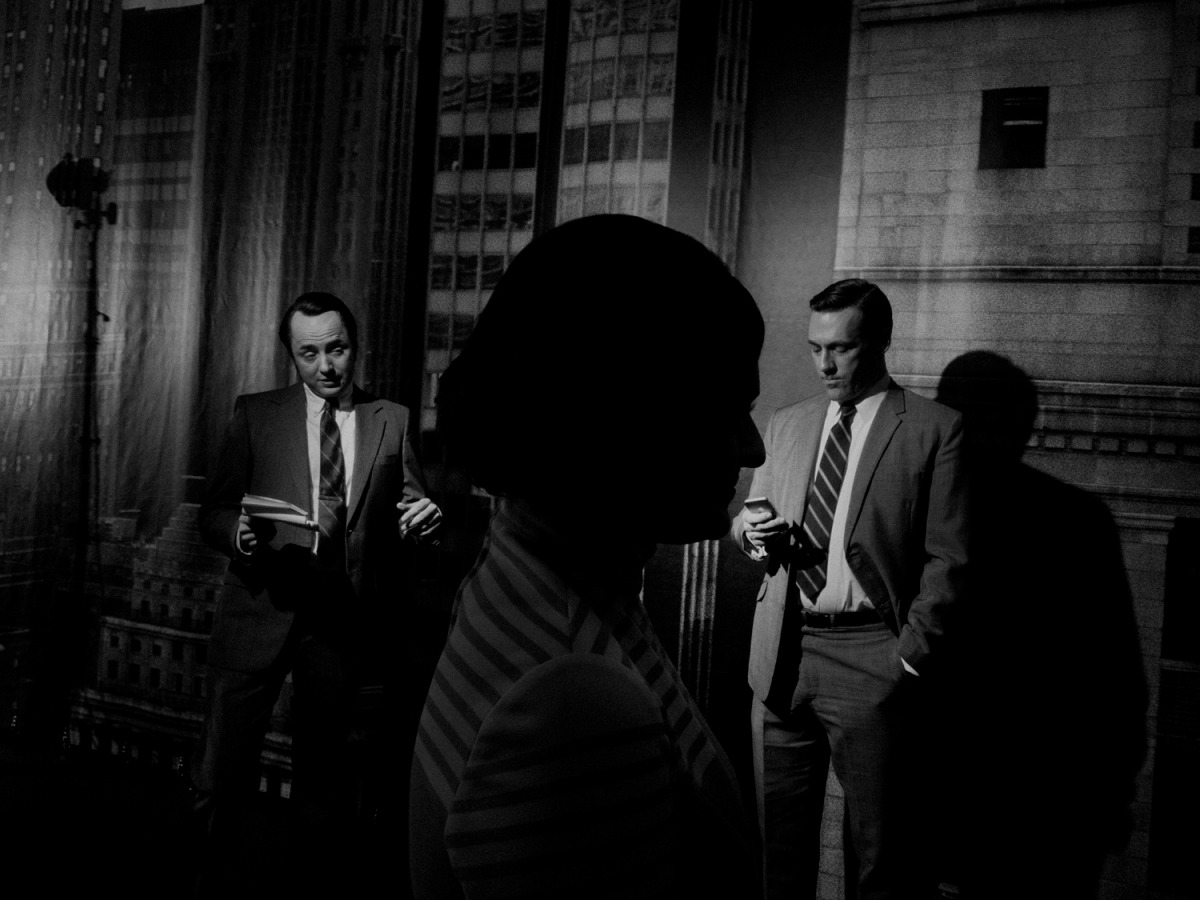
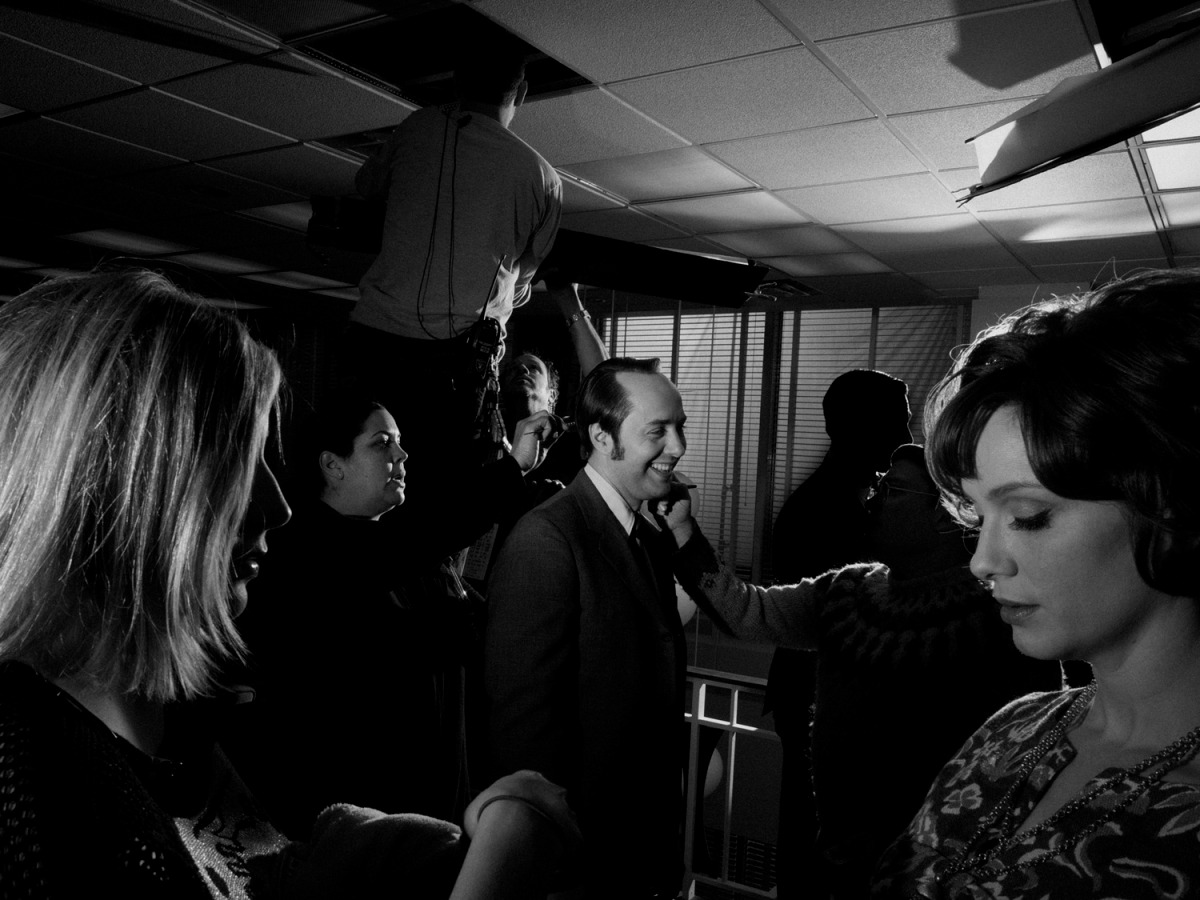
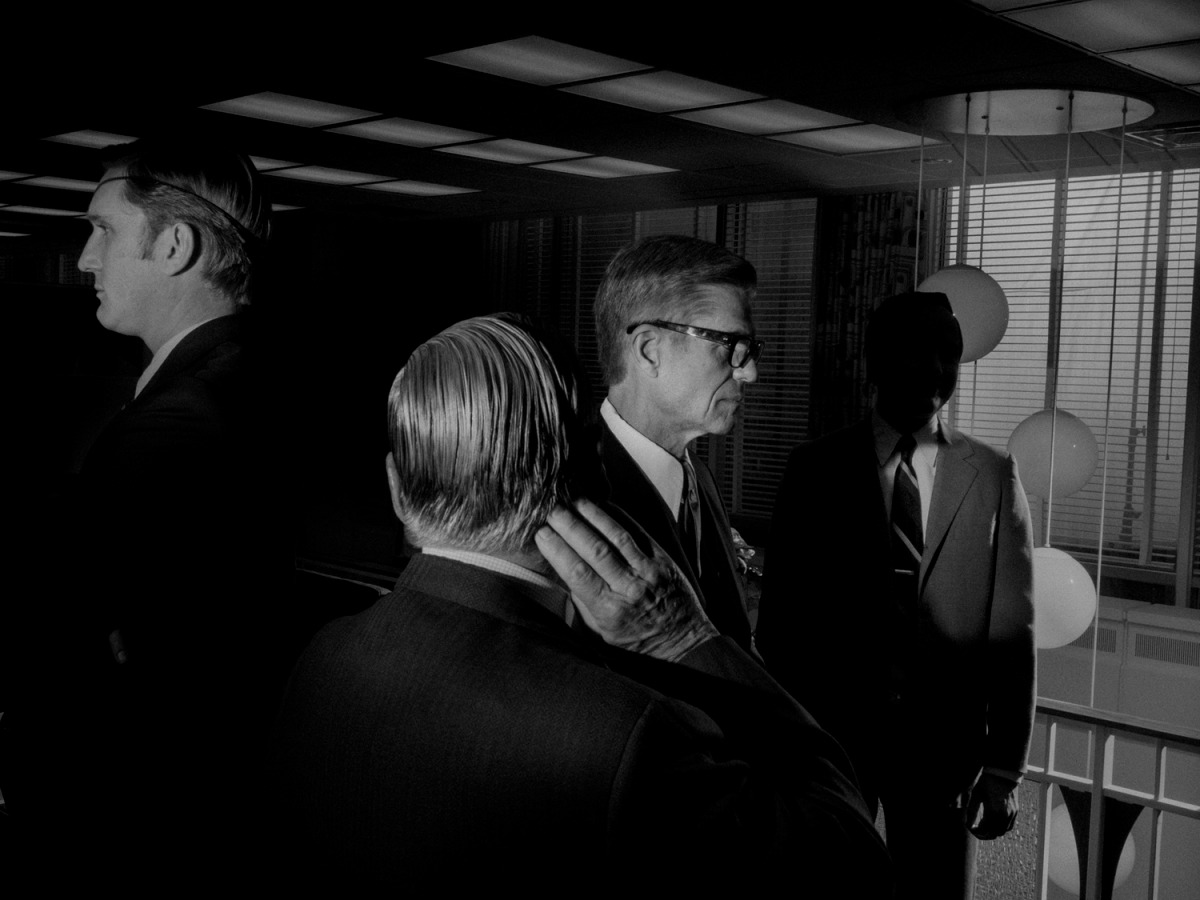
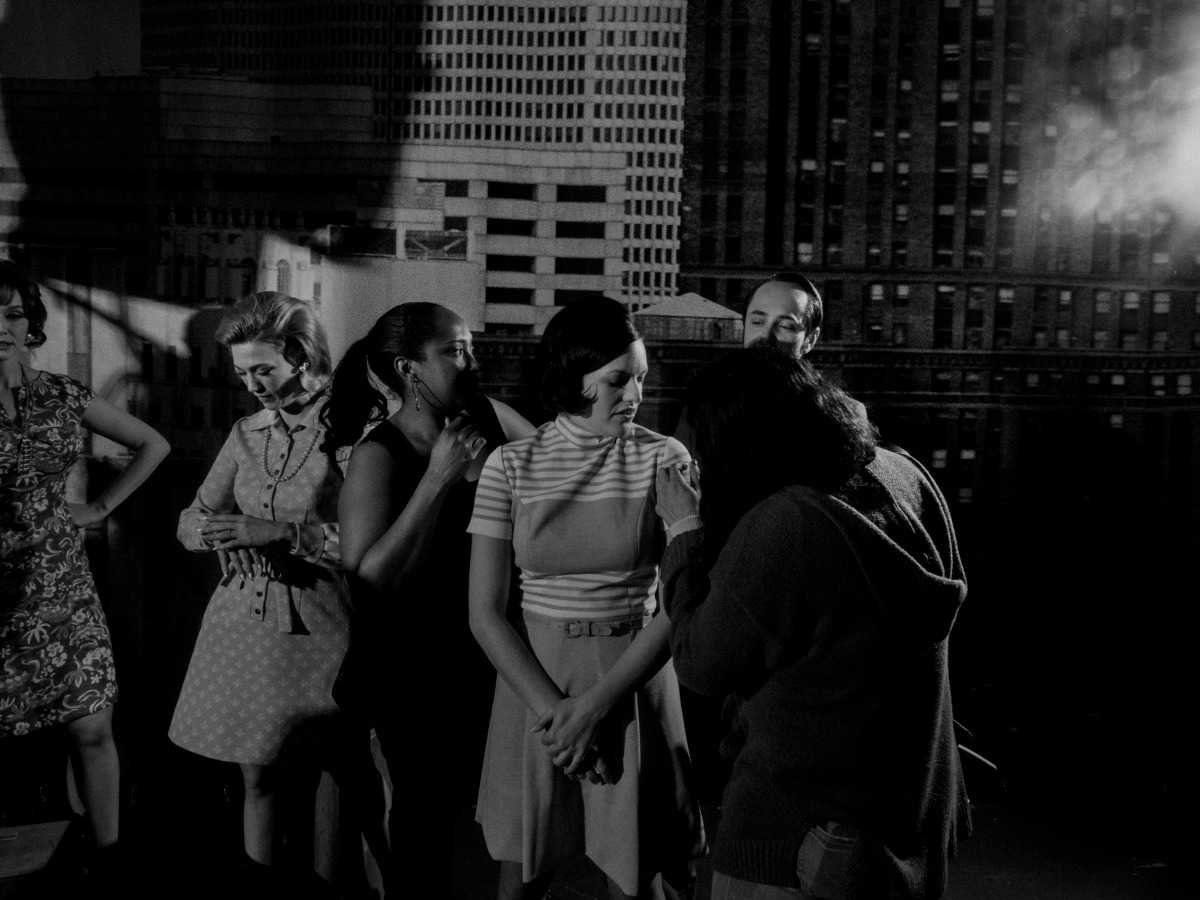
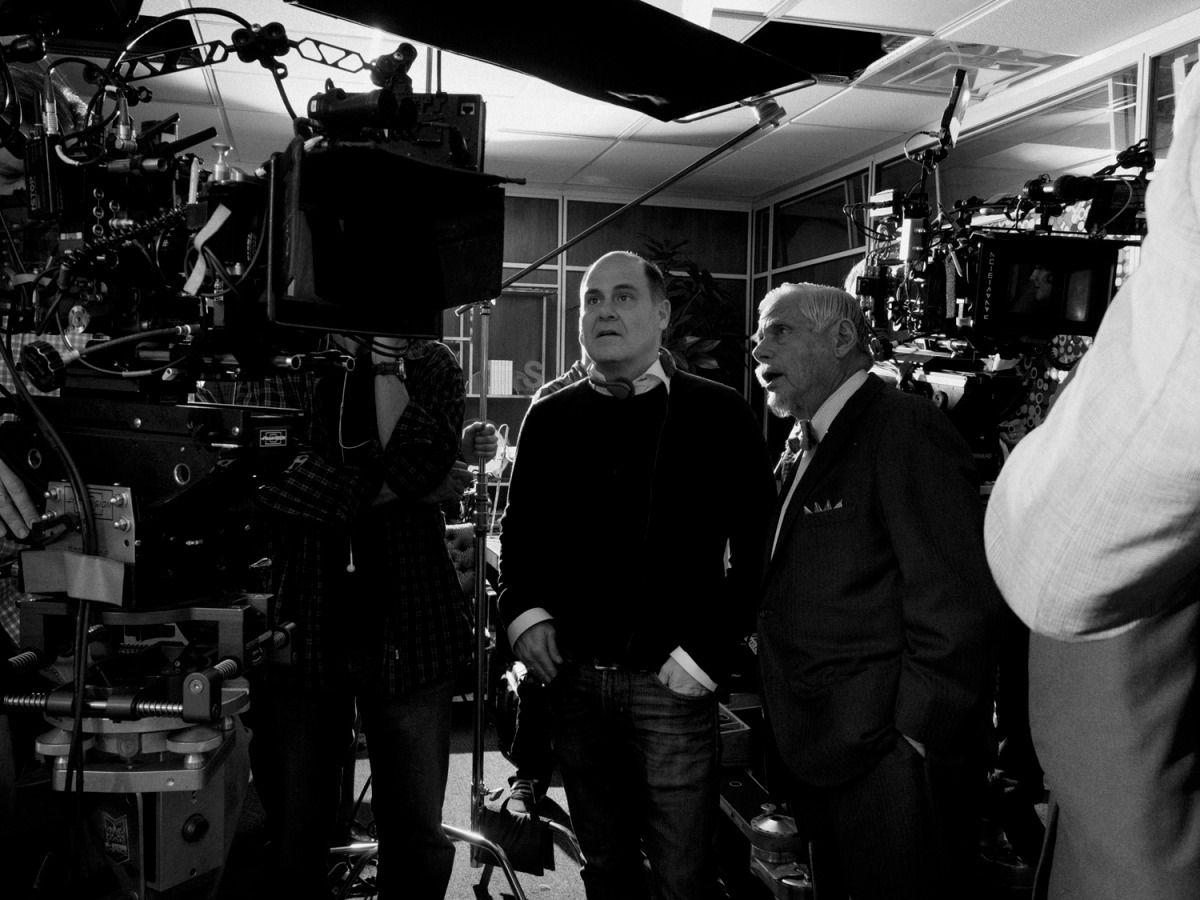
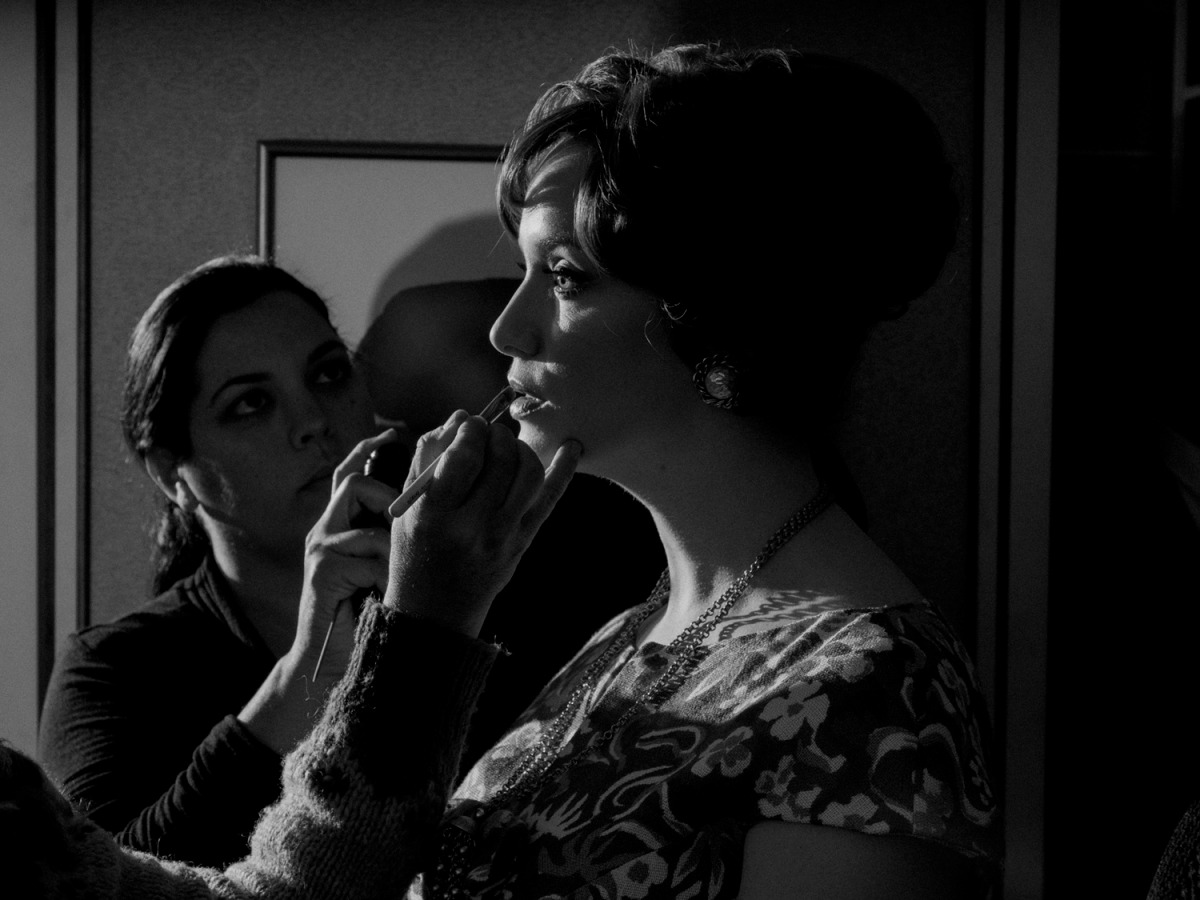
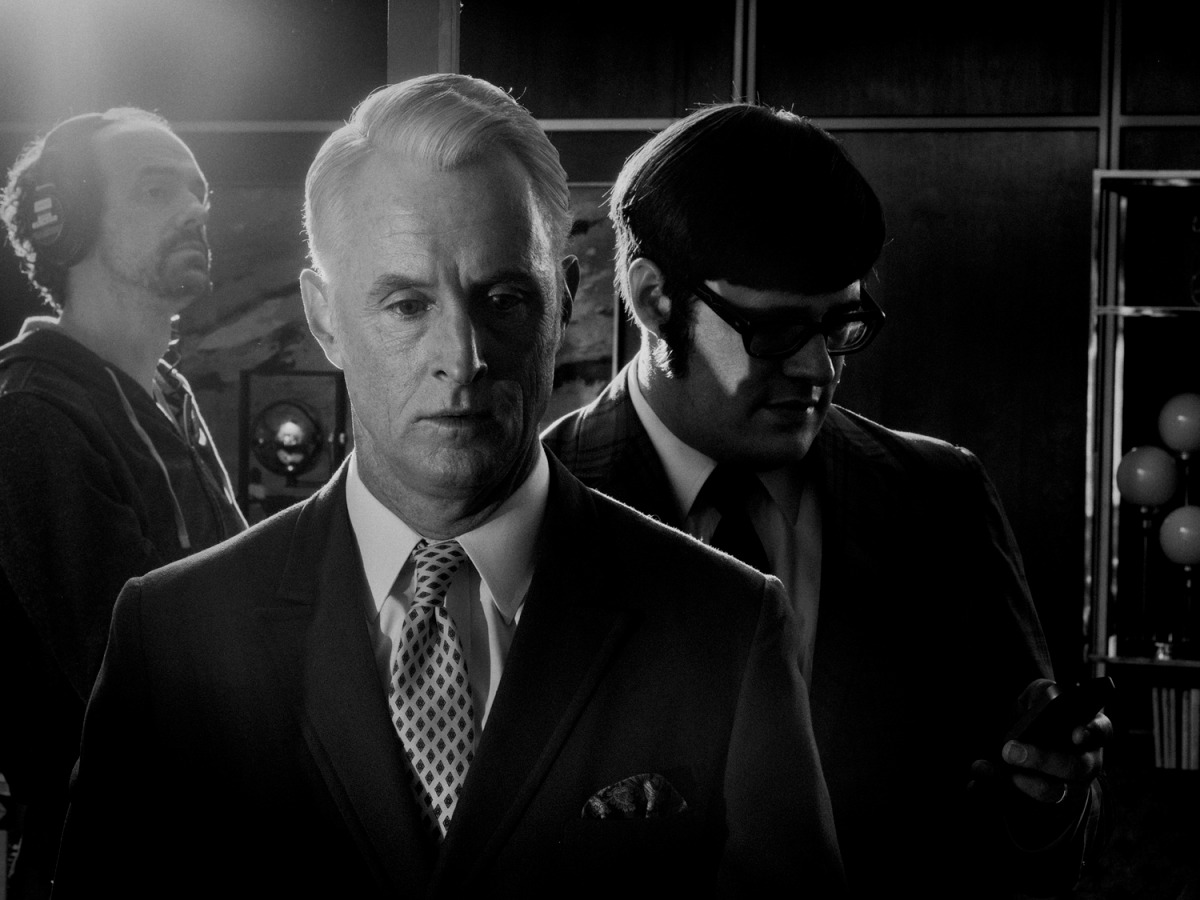
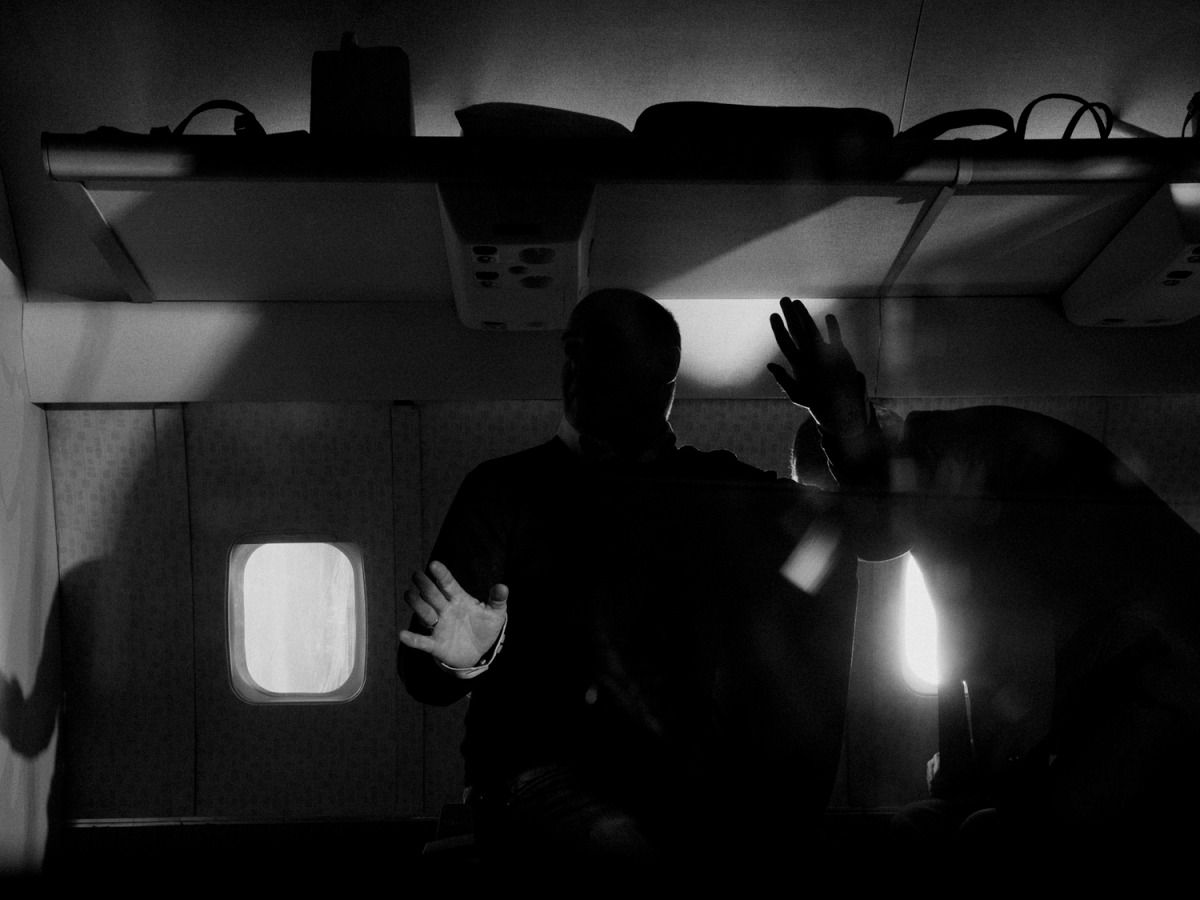
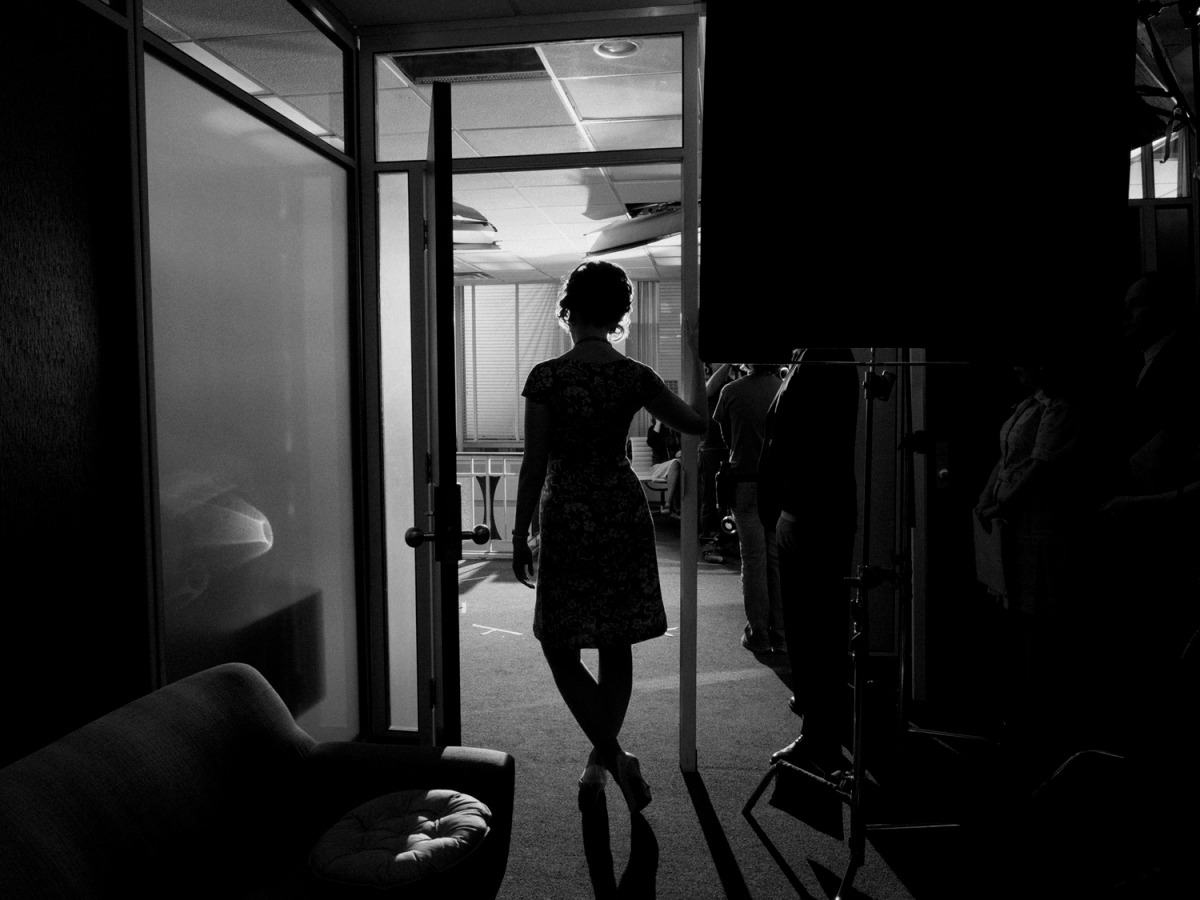
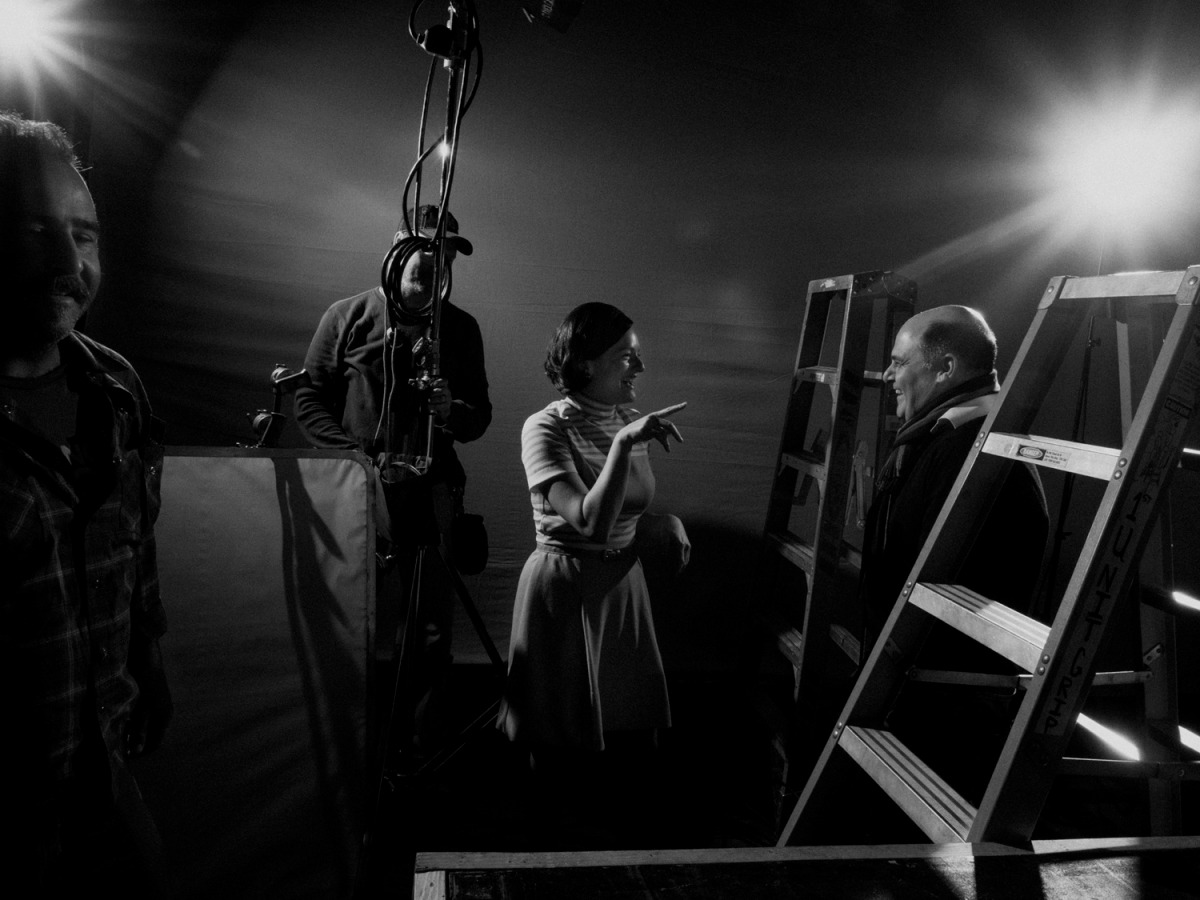
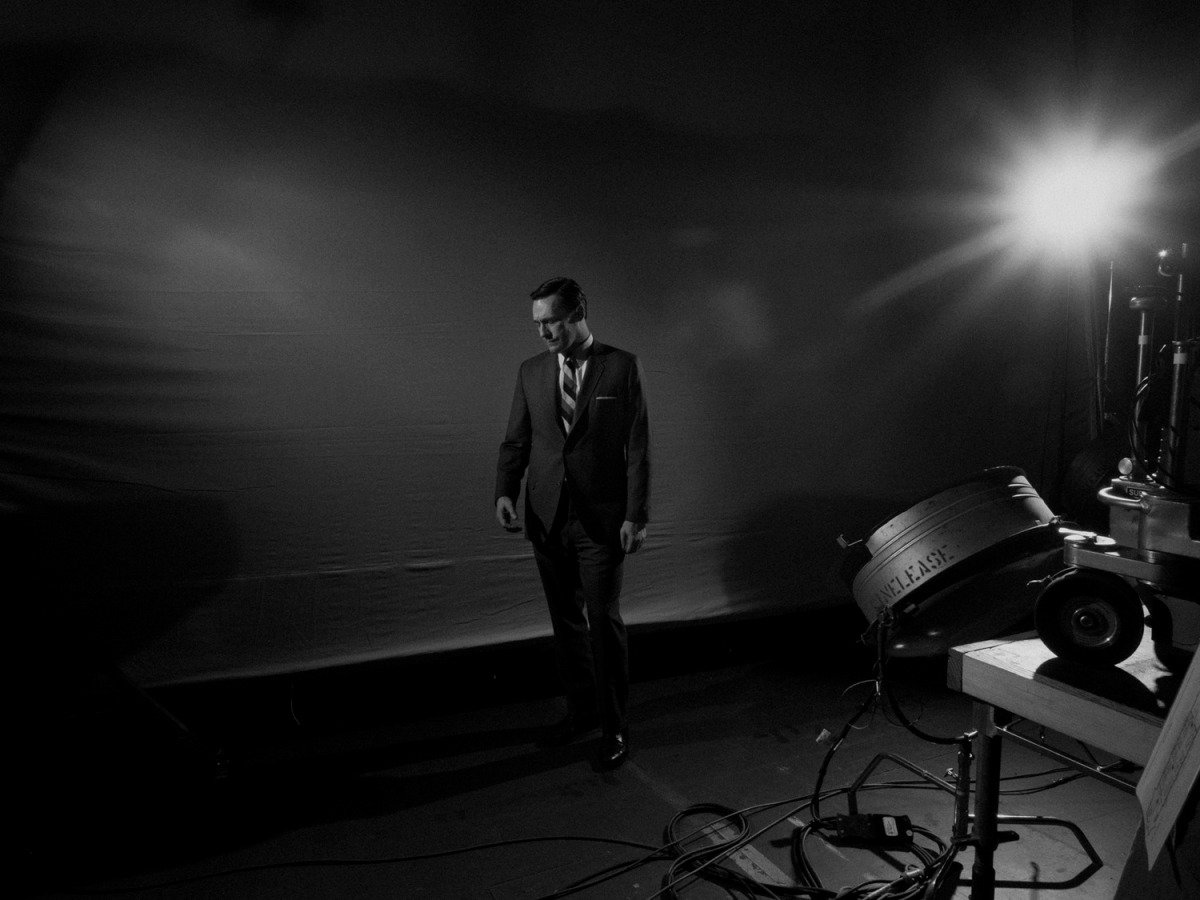
Last year Peggy had a confidence crisis at work when she clashed with a petulant Don Draper over the Burger Chef account, but after their mentor-mentee relationship gelled into a happy little work family, that crisis gave way to anxieties about turning 30 and her lack of romantic prospects. Meanwhile, Joan may have turned down Bob Benson’s unconventional marriage proposal, but as Peggy notes in the elevator, she’s filthy rich—Joan’s personal life may not be perfect, but it affords her a kind of freedom and agency she clearly can’t find at work. Unfortunately, neither character find much solace by the end of the episode: the client harassment drives a Joan to retail therapy (her new purchases don’t appear any more conservative than her usual outfits), while Peggy gets carried away on a blind date with her co-worker John Mathis’ brother-in-law, Stevie. Their initially frosty encounter only warms up once Stevie tells Peggy what Mathis said about her—that she’s fearless and funny and takes nothing from nobody—but several drinks and overeager romantic confessions later (not to mention a botched Paris getaway), Peggy’s just hungover and embarrassed about how desperate she is for a fairy-tale romance.
While Joan and Peggy try and get the job done, the men of SC&P are wrestling with the big questions about what makes a meaningful life. After Ken Cosgrove’s father-in-law retires, his wife encourages him to quit his job, devote himself to writing full time and chase his dreams. “You gave them your eye —don’t give them the rest of your life!” she urges, noting that they’re more than well-off financially. But Ken resists the idea that he’s just a cog in a machine, at least until a grudge-holding exec at McCann-Erickson—SC&P’s new parent company and Ken’s former employer—tells Roger Sterling to fire him. A betrayed Ken tells Don he’s taking the dismissal as a sign to go for what he wants, but it turns out writing wasn’t really the dream—feeling important and powerful was. So after briefly considering writing a juicy book about an advertising agency, Ken finds a sweeter form of revenge when he becomes the head of advertising at Dow Chemical and promises to be the client from hell to Pete and Roger. “I hate to tell you, I’m very difficult to please,” he warns.
Don Draper, too, spends a lot of time rethinking his life choices, their consequences and—refreshingly, given that he’s a dude—what it means to have it at all. Last year, Don took steps toward redemption by applying the campsite rule—leave it better than how you found it—to the other people in his life. He struggled to work alongside Peggy when he made his rocky return to the company, but it wasn’t long before he was fighting for her future; his marriage with Megan collapsed, but he promised to always take care of her; he even showed concern for what he was passing along to his kids, valuing his relationship with them more than ever following a few reminders of his own mortality.
But now, instead of trying to correct his past, he’s haunted by it in the form of two women. The first is former flame Rachel Katz (née Menken), whose relationship with Don fell apart many seasons ago after she realized Don didn’t want to leave his family for her—he just saw her an escape route for his life. Don thinks he sees her audition during a bizarre is-he-dreaming-or-not casting session, but when he tries to reconnect—under the guise of a business meeting to help the new Topaz line get into department stores—he’s shocked to learn she passed away. He crashes her family’s shiva, meets Rachel’s sister (who’s not a fan of Don, to say the least) and learns she died of leukemia. “She lived the life she wanted,” her sister says acerbically. “She had everything.” What does “everything” mean in this case? Kids? A spouse? A job? Don has or has had all three of those technically, but from the damaged, glassy-eyed look on his face, it’s clear that whatever “everything” is, he doesn’t have it.
The 10 Best Outfits From Mad Men
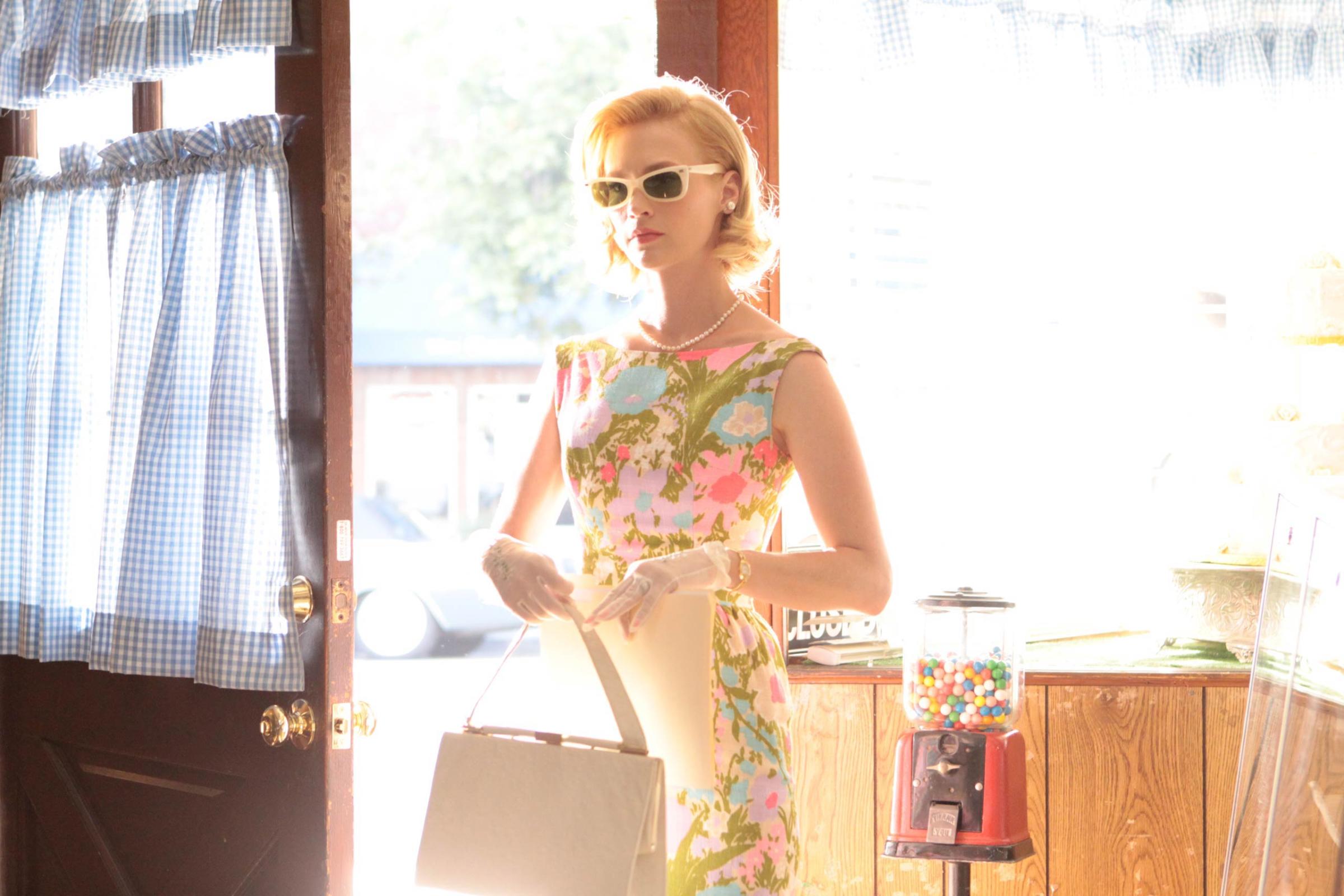
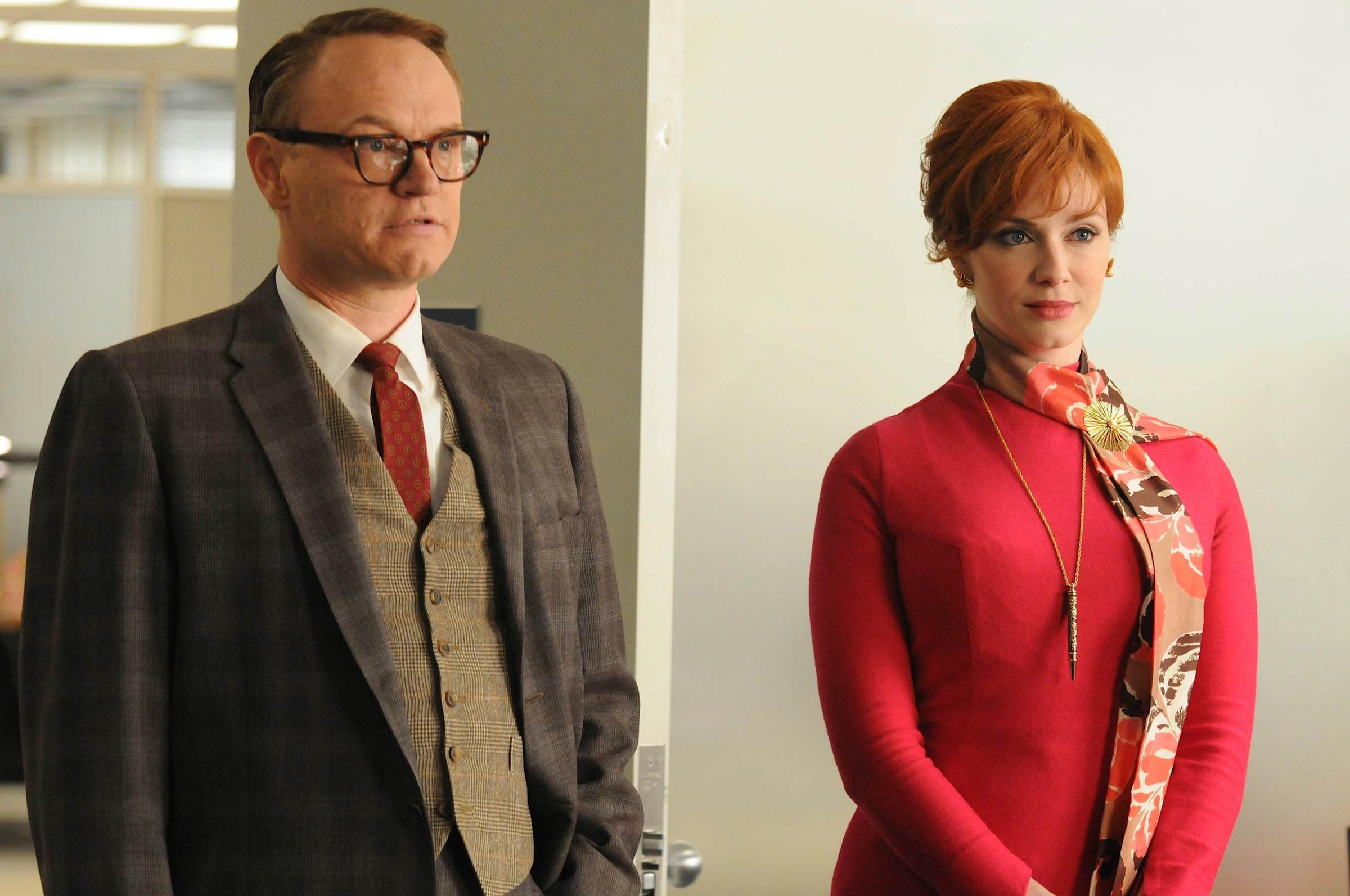
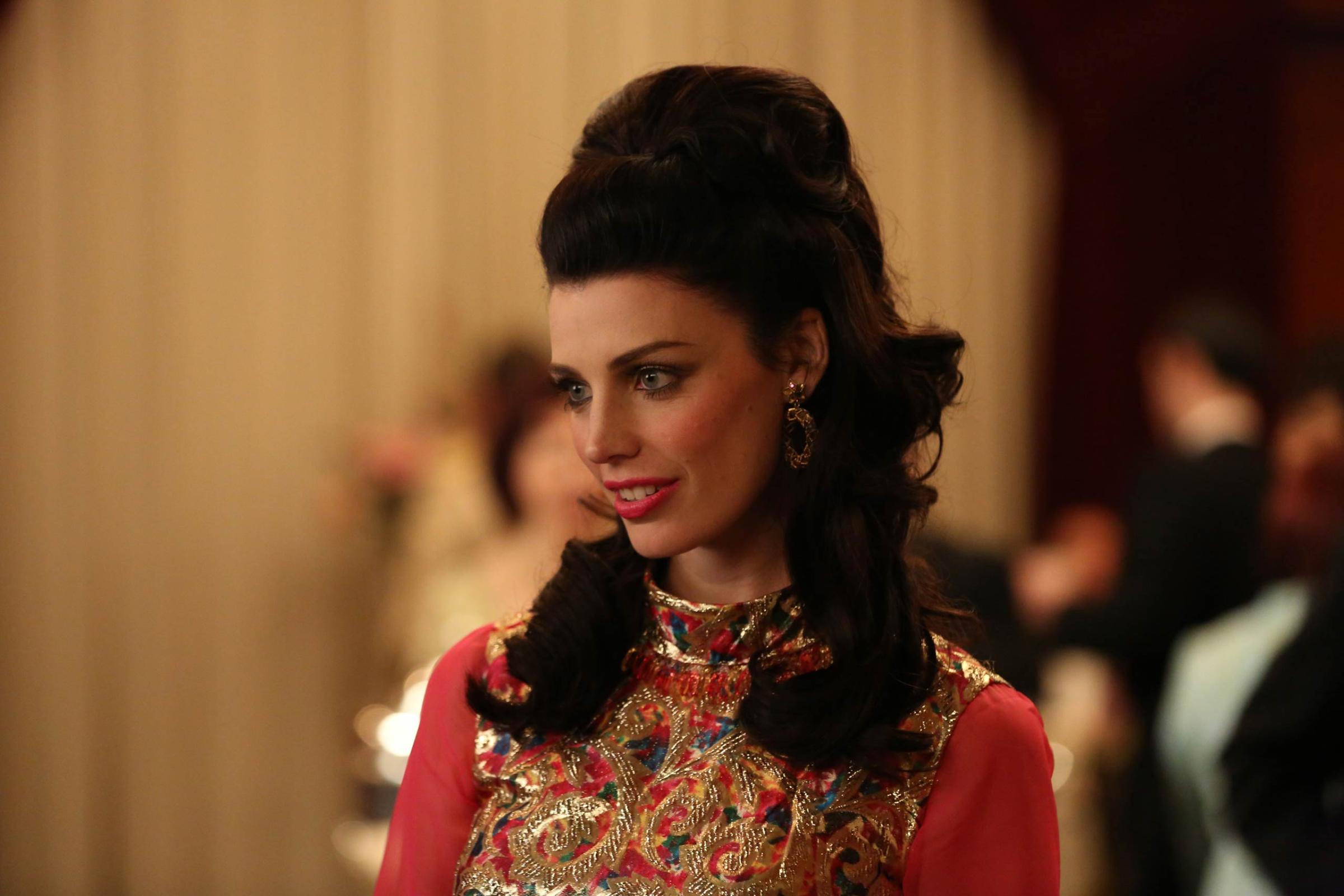

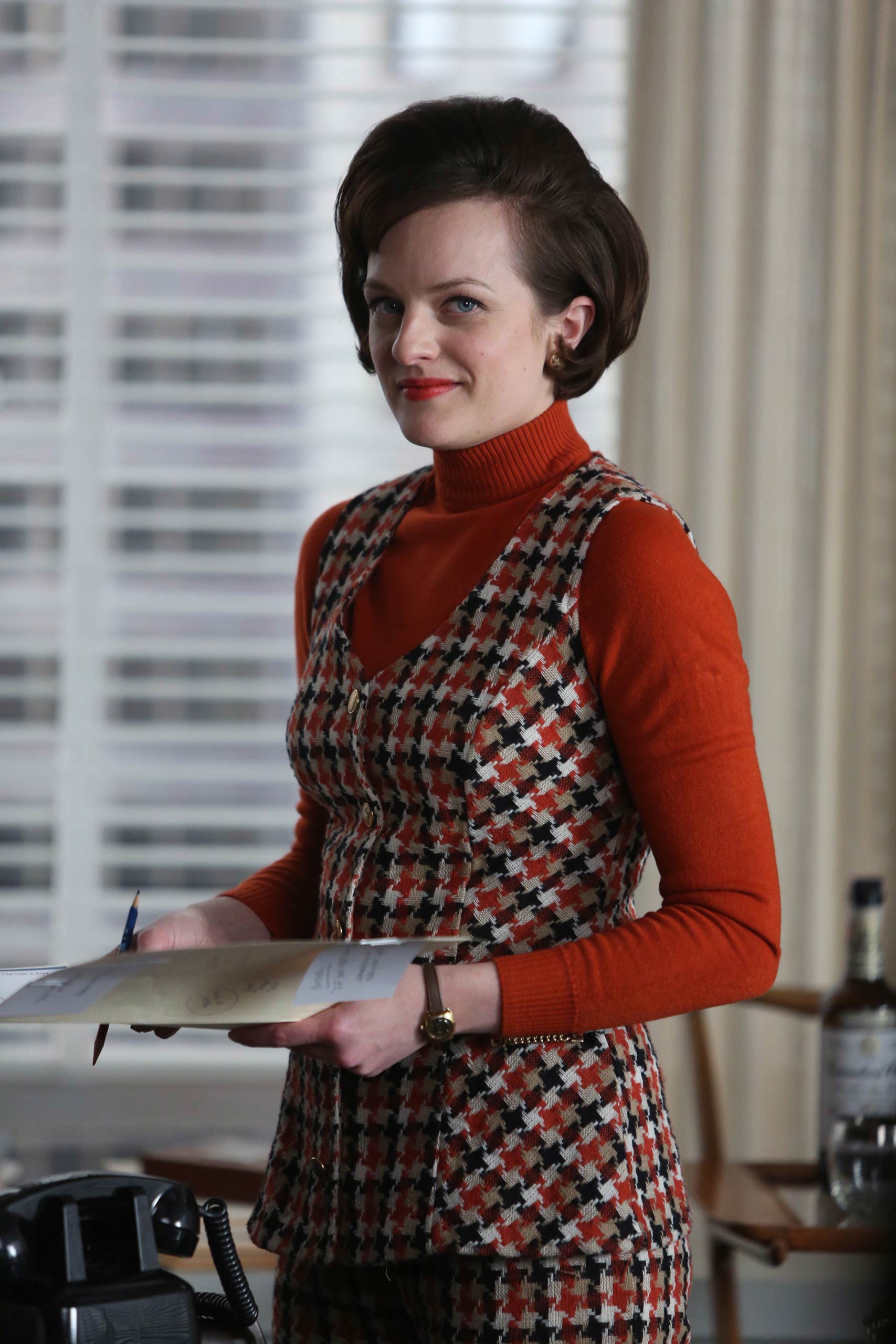
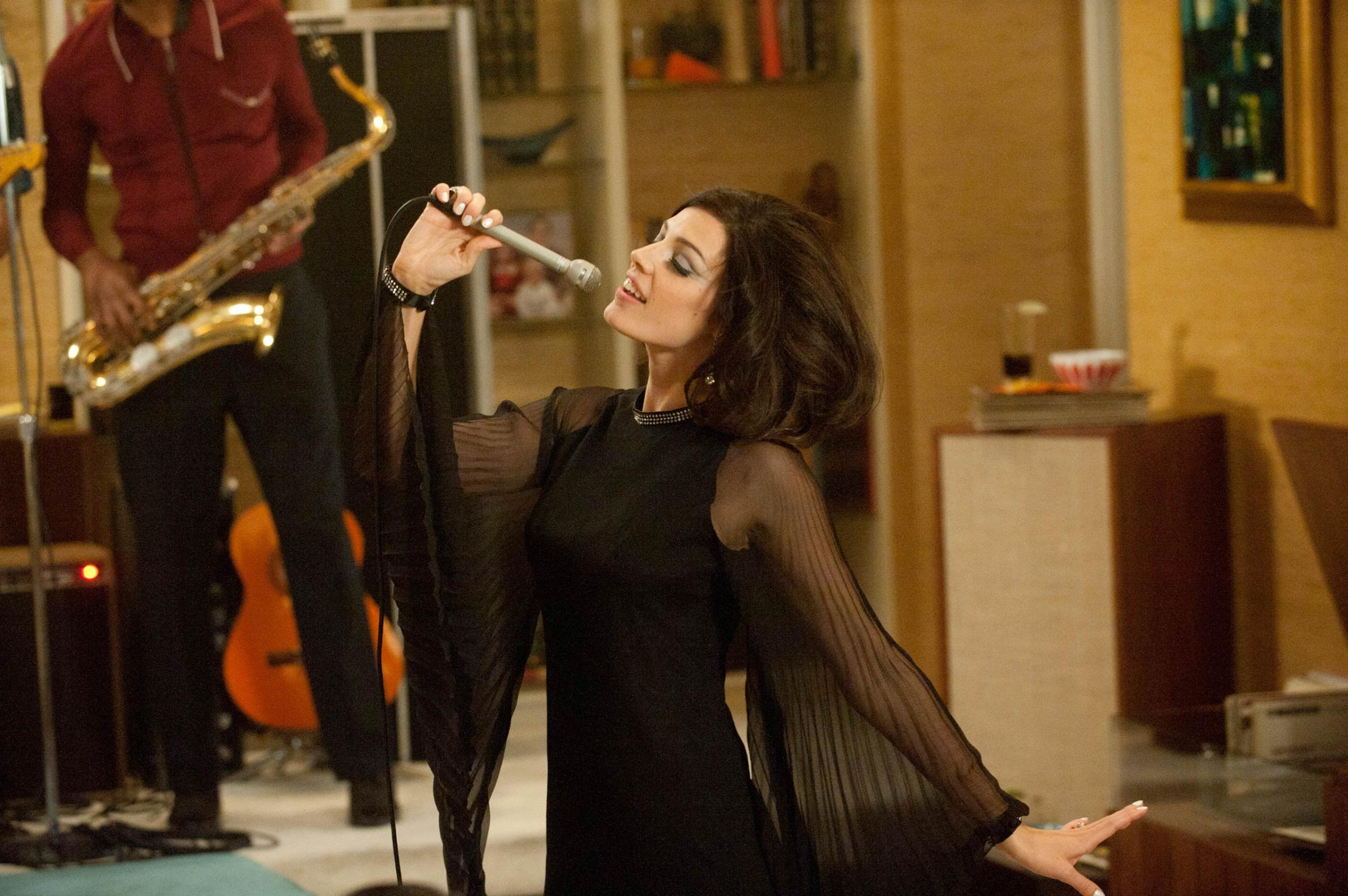
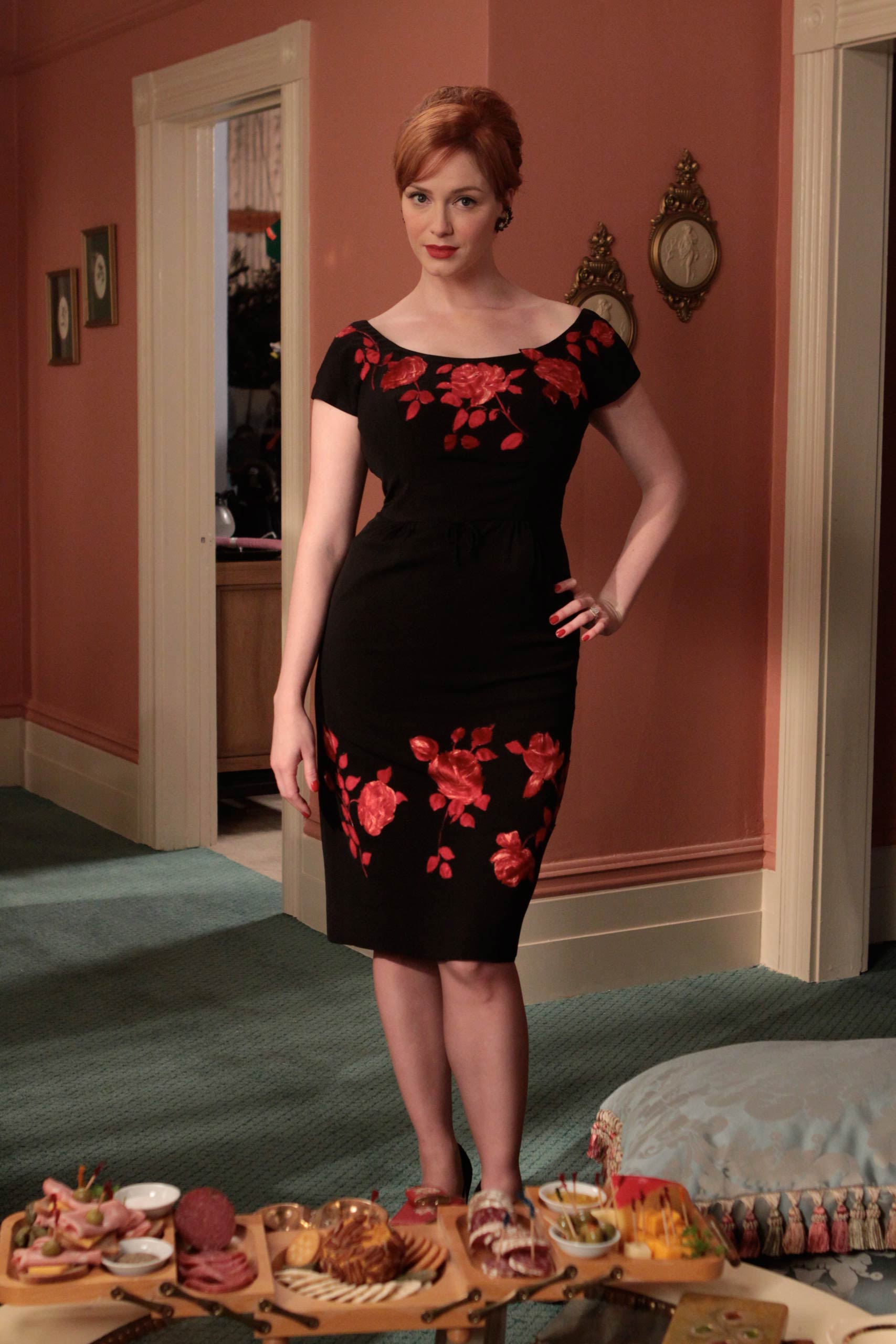
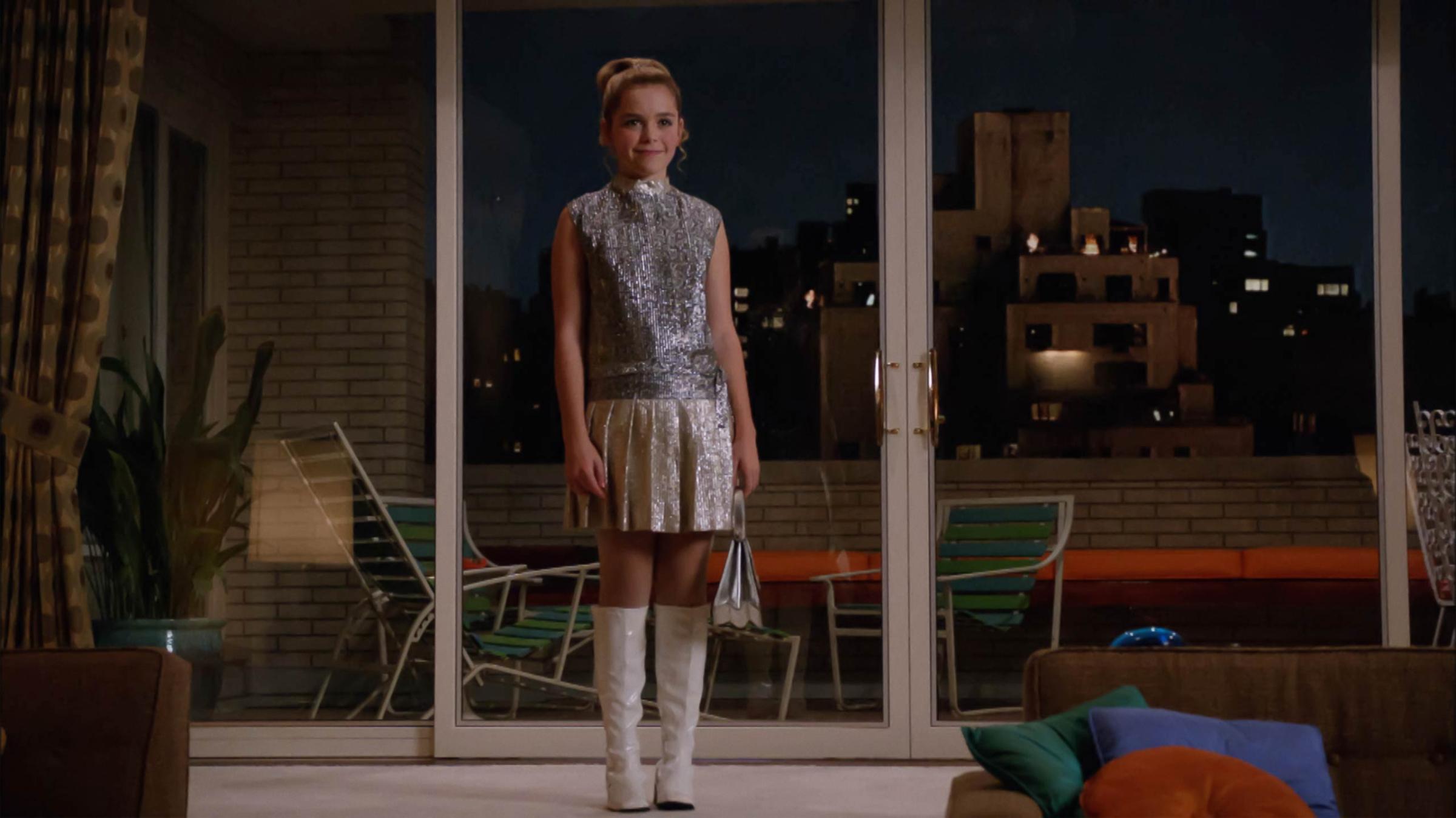
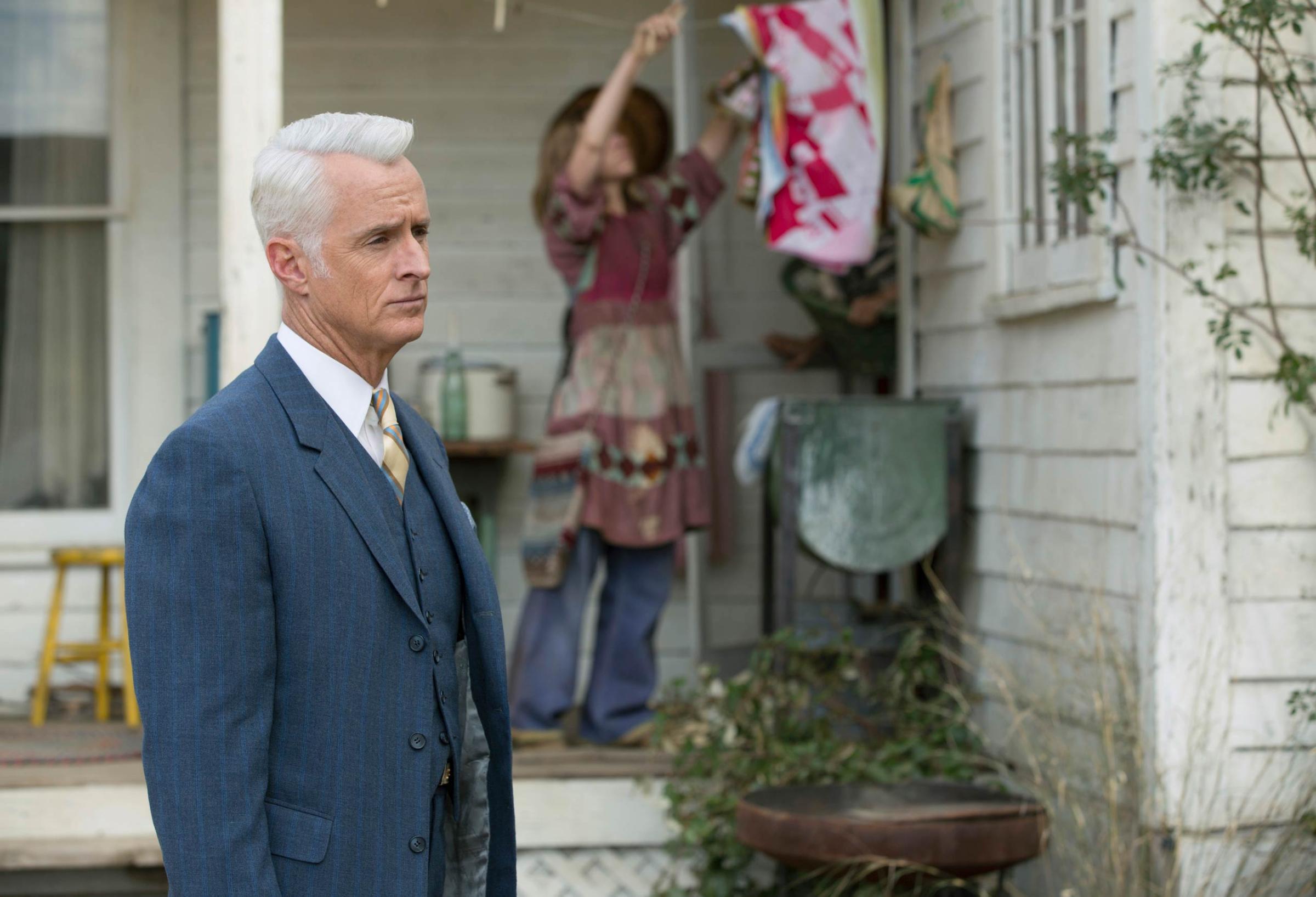
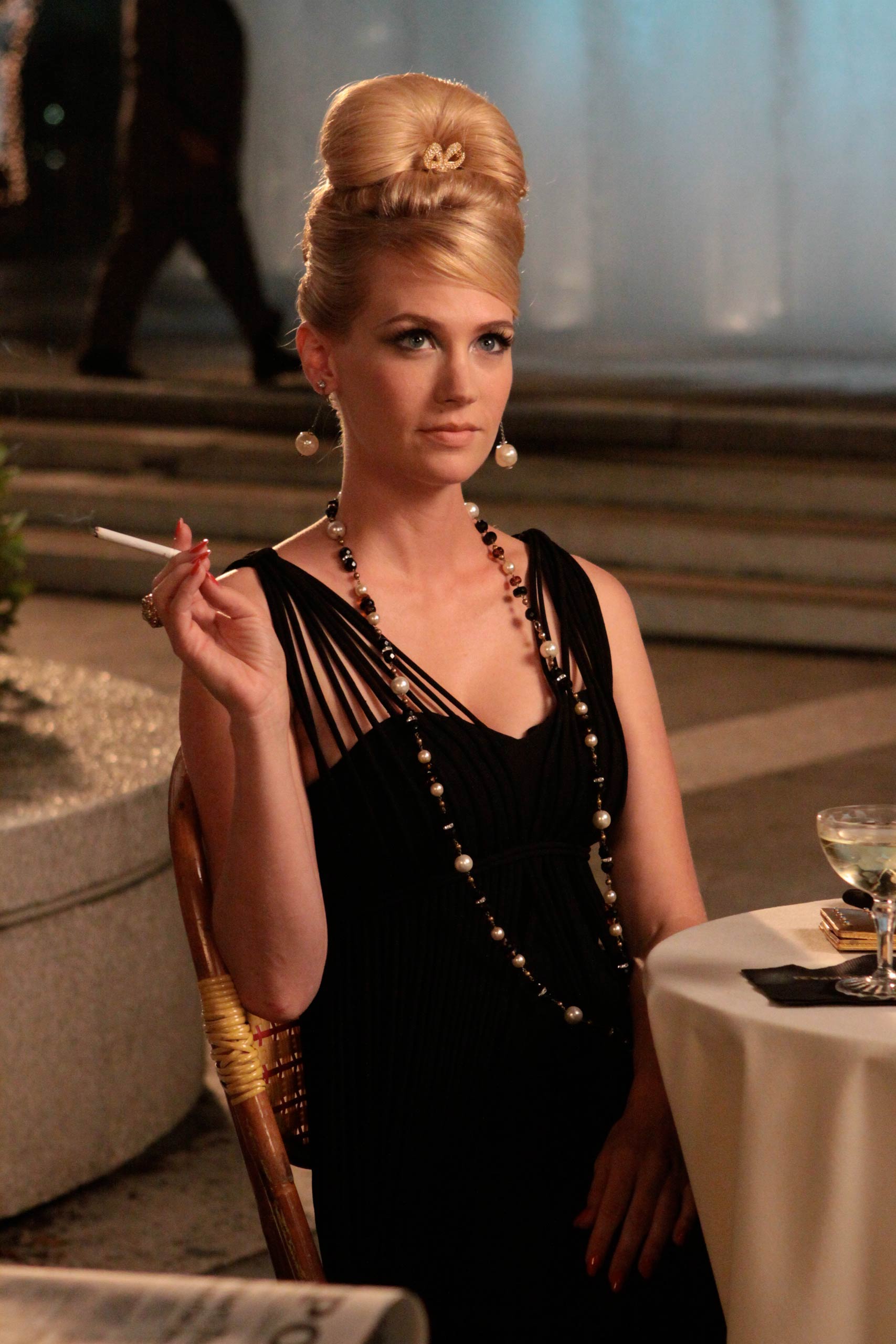
The other woman haunting him has nothing to do with Rachel, or maybe everything to do with Rachel. She’s a diner waitress (played by Elizabeth Reaser) whom Don believes he recognizes but for some reason can’t place. (Maybe she had facial reconstruction surgery!) His fascination with her becomes a mild obsession: after first noticing her while dining out with Roger and some lady friends, Don returns another night and ends up getting freaky with her in the alleyway (she implies that Don paid for the encounter with the $100 bill he left the first night, but that was just Roger’s generous way of settling the bill after teasing her all night). When Don returns a third time at the end of the episode, she basically tells him to get lost—but not before giving him some advice that’s just as valuable for the audience, too.
Part of the mystery surrounding every Mad Men season, especially these final episodes, is the calendar: what year does the show famous for its attention to historical detail take place? The question has been looming over tonight’s premiere, and we get a clue when a sleepless Don catches a Nixon speech about Vietnam that occurred on April 30, 1970. But as Don tells the waitress about seeing Rachel in what is now clearly a dream, she tells him not to trust his version of events. “I want you to think very carefully about when you had that dream because when people die, everything gets mixed up,” she warns. “When someone dies, you just want to make sense out of it.” The implication? As you’re trying to make sense of Don Draper’s fate and his final days, don’t put much stock in chronology, either.
Read next: This Is the Nixon Speech Don Draper Was Watching on Mad Men
More Must-Reads from TIME
- Caitlin Clark Is TIME's 2024 Athlete of the Year
- Where Trump 2.0 Will Differ From 1.0
- Is Intermittent Fasting Good or Bad for You?
- The 100 Must-Read Books of 2024
- Column: If Optimism Feels Ridiculous Now, Try Hope
- The Future of Climate Action Is Trade Policy
- FX’s Say Nothing Is the Must-Watch Political Thriller of 2024
- Merle Bombardieri Is Helping People Make the Baby Decision
Write to Nolan Feeney at nolan.feeney@time.com